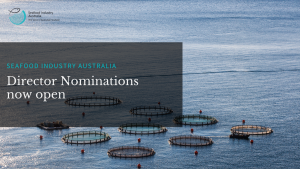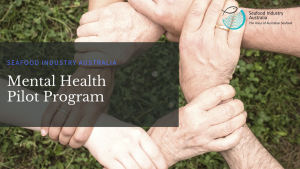Global fish stocks are healthy and abundant, says a new study, with Australia’s seafood industry encouraging consumers to support local, sustainable seafood as part of World Oceans Day celebrations on Monday, June 8.
“This study confirms again that Australia’s seafood industry is responsibility managed and produces some of the best seafood in the world,” Seafood Industry Australia (SIA) Acting CEO Veronica Papacosta said.
“As fishers, our priority is the ocean. It’s our livelihood, and the future livelihood of generations to come.”
The study into global fisheries management, published in the January edition of Proceedings of the National Academy of Sciences, showed reported fisheries catches are in good shape. The international project, led by the University of Washington, compiled and analysed data from fisheries around the world.
“There is a narrative that fish stocks are declining around the world, that fisheries management is failing and we need new solutions – and it’s totally wrong,” according to lead author Ray Hilborn, a foremost fisheries scientist and professor at the University of Washington School of Aquatic and Fishery Sciences.
“Fish stocks are not all declining around the world. They are increasing in many places, and we already know how to solve problems through effective fisheries management.”
Australia’s seafood industry is subject to some of the most intensive fisheries management and reporting protocol in the world, with every boat obligated to submit comprehensive catch data, Ms Papacosta said.
“As an industry, accountability is incredibly important. Every Australian boat, catch and pot has to be logged and submitted to the relevant authority,” she said.
“We have wonderful fisheries management structures here in Australia and our Fisheries Managers let our fishers know what they can catch, where they can catch it, when and how they can catch it, and how many they’re allowed to catch each year. And most importantly, it’s working.”
For the sixth consecutive year (2019) Australia’s Commonwealth-managed fisheries have been given the tick of sustainability.
“This is something our commercial fishers are very proud of, and is unprecedented internationally,” Ms Papacosta said.
“The footprint of Australia’s trawlers is one of the smallest in the world. Coupled with our aquaculture sector – who provide fresh, high-quality seafood, year-round – Australian seafood is one of the best managed and most sustainable protein sources in the world.”
The research project built on a decade-long international collaboration to assemble estimates of the status of fish stocks around the world.
“With the data we were able to assemble, we could test whether fisheries management allows stocks to recover,” said co-author Christopher Costello, a professor of environmental and resource economics at University of California, Santa Barbara, and a board member of the Environmental Defense Fund.
“We found that, emphatically, the answer is yes. This really gives credibility to the fishery managers and governments around the world that are willing to take strong actions.”
The research team’s database now includes information on nearly half of the world’s fish catch, about 880 fish stocks, up from about 20 per cent represented in the last compilation in 2009.
The researchers paired information on fish stocks with recently published data on fisheries management activities in about 30 countries; and Australia’s fisheries, founded on the Quota Management System, are consistently rated as among the world’s best managed.
While the understanding worldwide of the health and status of fish populations is now at its most comprehensive, there are still big gaps in the data. Most of the fish stocks in southern Asia do not have scientific estimates of their status. While fisheries in India, Indonesia and China alone represent 30 to 40 per cent of the world’s fish catch that is essentially unassessed, researchers said.
“Australians can be confident that Australian seafood comes from well-managed, sustainable fisheries, which ensures that our fish stocks will be around for generations to come,” Ms Papacosta said.
“This study reaffirms that Australia’s fisheries management is world class, and our fisheries are getting even healthier, sustainable to catch and eat.
“We know Australians love to eat Australian seafood and if you want to be certain you’re eating sustainable, healthy, world-class seafood that’s good for you and good for the planet, always ask for Aussie seafood.”
<ENDS>
For more information or to organise an interview with SIA Acting CEO Veronica Papacosta please contact Media and Communications Manager, Jessica McInerney
E: jessica@463.9af.myftpupload.com M: 0420 695 431







